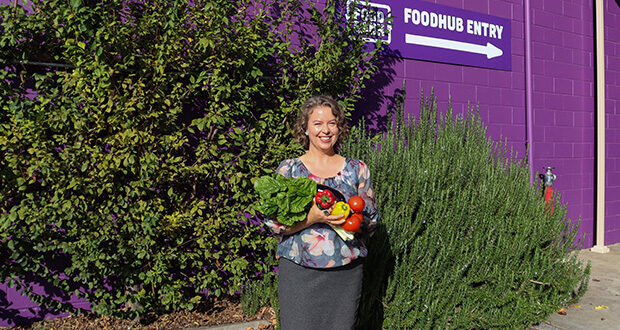A Flinders University researcher has received funding to reduce food insecurity in South Australia by enhancing food preservation, minimising waste, and providing healthy options in food relief banks.
Through the new Australian Research Council industry fellowship, Flinders Professor Svetlana Bogomolova will work alongside Foodbank SA and state agency Green Industries SA to develop strategies to extend the shelf-life of fresh produce.
"In the face of rising living costs, families prioritise fixed expenses such as housing and utilities, leaving limited resources for food," Professor Bogomolova told Campus Review.
"Food insecurity is not just about food; it is fundamentally caused by poverty, which leads to a lack of financial, social, and cultural resources to be engaged in the community."
The new ARC scheme was launched this year and aimed to support researchers working with industry to develop applicable research to be scaled up nationwide.
Only 25 researchers across the country were awarded ARC grants in this years' funding round to investigate Australia's water supply, creating drugs from fungi and developing more educational resources on Indigenous languages.
Professor Bogomolova said the ARC industry scheme offers researchers a unique opportunity to see their ideas come to life and have a tangible impact on the community rather than simply publishing a paper in an academic journal.
"It's a real celebration of the move by the ARC in the right direction in supporting and promoting and encouraging researchers to put forward proposals in very close collaboration with industry partners," she said.
"But equally, to win this highly competitive scheme, it rewards people like me who spent 20 years doing industry-engaged research."
For the next four years, Professor Bogomolova will explore new ways to preserve fruits and vegetables from harvest surplus to ensure food banks and charities can distribute healthy food options without requiring refrigeration or shorter distribution circuits.
She said refrigeration facilities are a luxury, making it difficult for food charities and those in need to preserve fresh food without access to a fridge.
"We need to think about how we can make a healthy and fresh product with a long shelf life in the ambient temperature, but it also needs to be appealing," Professor Bogomolova said.
"The way we deliver food relief must be in the most dignified and 'normal' life-like manner.
"The last thing people need is being made feel like they're sort of getting some sort of secondhand food."
The project will use harvest surplus from farms that often grow more than their supermarket contract requirements and cannot be sold to other entities.
In Australia, food banks are often challenged by the unpredictable amounts of fresh fruit and vegetable donations from farmers, which causes distribution challenges, often resulting in food waste.
Professor Bogomolova and the industry partners will work alongside nutritionists to try out various techniques such as pickling, freeze drying, canning, pureeing and juicing to meet the demand for healthy food year-round.
According to the not-for-profit charity FoodBank, over 2 million Australian households have experienced severe food insecurity in the last year, with food waste costing the nation about $36.6 billion per annum.
In 2022, FoodBank distributed more than 82 million meals nationwide, providing food relief to more than a million people monthly.
In the tertiary education sector, a recent Monash survey has shown that international students are experiencing food insecurity at rates three times higher than the general population.
University staff have also been struggling to buy basic groceries, with a study from the University of Tasmania highlighting that one in six academic staff were experiencing food insecurity.
The survey found that casuals were at higher risk of food insecurity, with one in five professional staff and one in three casual academics skipping meals regularly.
According to Professor Bogomolova, experiencing food insecurity impacts people's physical health and also affects their confidence and social interactions.
"Individuals without sufficient resources may feel embarrassed and excluded from social gatherings due to their inability to afford a meal - it impacts their whole life," she said.
"Food is not just nutrition and survival, but also a critical social element that allows us to function and enjoy and feel, you know, loved and cared for and included."
In addition to providing immediate food relief, the Flinders project aims to create accessible job opportunities by offering training, volunteering, and skill-building in supply chain networks focusing on understanding food sources, processing, storage, and distribution within food relief networks.
Professor Bogomolova said providing food relief is a "band-aid" that isn't sustainable long-term.
"The underlying cause is not just lack of food, but lack of financial, social, and cultural capital," she said.
"So how can we facilitate a pathway out of poverty and out of food insecurity?"
She said the social aspect of the project would help empower people to get their life back on track.
"Food is a critical social element that allows us to function and enjoy and feel loved, cared for and included."
Do you have an idea for a story?Email [email protected]
 Campus Review The latest in higher education news
Campus Review The latest in higher education news

